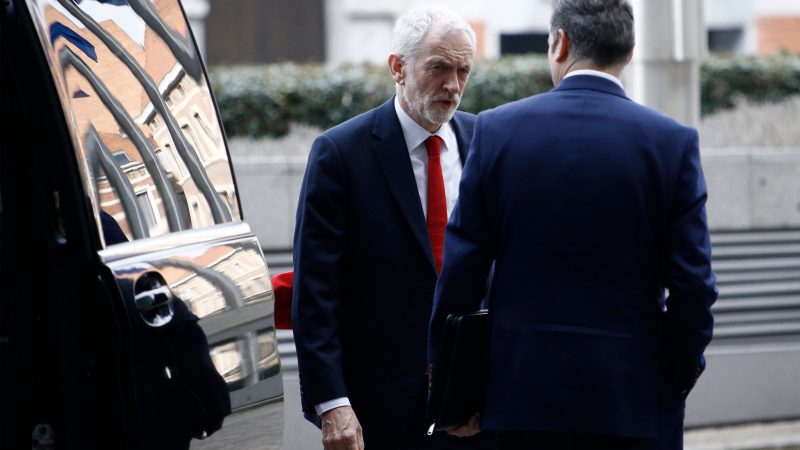
More than one in four Labour members would consider joining Jeremy Corbyn and Zarah Sultana’s new left-wing party, an exclusive poll for LabourList has revealed.
The poll, conducted by Survation, revealed that 28% of Labour members surveyed would consider leaving Labour for ‘Your Party’, while two-thirds said they would not join the new party.
Men were more likely to consider joining the party (31%), as well as those aged 45-54 (34%), those who joined the party around 2015 (44%), and members who backed Rebecca Long-Bailey in the 2020 leadership election (70%).
By region, members in the East of England were most likely to be considering leaving Labour for ‘Your Party’ (41%), while those in London were the least likely (17%).
It comes as the former Labour leader and the former Labour MP for Coventry South gear up for their fledgling party’s inaugural conference, due to be held in the autumn to determine a permanent name and its policies.
READ MORE: Cabinet rankings: Kendall overtakes Reeves as least popular minister among Labour members
More than half of members fear ‘Your Party’ will increase chances of Reform/Tory government
More than half of members polled (51%) said they thought Corbyn and Sultana’s new party would take votes from Labour and increase the chances of a Reform or Conservative government, while 12% thought the party would predominantly take votes from the Greens and minor parties, having no impact on who forms the government.
Only three percent of those polled thought ‘Your Party’ could win enough votes to form their own government.
In a recent interview with LabourList, former Labour leader Neil Kinnock warned of the threat of a split progressive vote to Labour – and hit out at the new left-wing party.
“I’ve suggested in all comradeship that Corbyn’s outfit should be called the Farage Assistance Faction, or FAF, because they must know that the only place they can get votes is from people who would otherwise vote Labour.”
When asked how the party should respond to the potential threat of the new party, the majority of members polled (59%) said Labour should move to the left, while more than a third (35%) thought the party should move “further and faster” on its current agenda, with only two percent calling on Labour to move to the right.
Subscribe here to our daily newsletter roundup of Labour news, analysis and comment– and follow us on Bluesky, WhatsApp, X and Facebook.
Damian Lyons Lowe, chief executive of Survation, said: “‘Consideration’ of a new party is a softer measure than outright support, but these findings nevertheless reflect the residual sympathy for Jeremy Corbyn and frustration over his departure from Labour.
“The extent to which ‘Your Party’ becomes an electoral problem for Labour is an open question. The task of creating a viable new party is formidable, particularly given the policy differences likely among its founding MPs outside their shared stance on Gaza.
“As to the difference a new left party could make to Labour’s bid for a second term, much will depend on whether progressive-leaning voters tactically support Labour in constituencies where the contest is between Labour and Conservative or Reform candidates.
“If Labour is able to retain and attract progressive and centre-left voters ‒ and we are seeing continued seepage of support to both the Greens and the Liberal Democrats this parliament ‒ there is still a fighting chance for Labour to win a second term, despite the huge drop in first-choice support since the general election.”
READ MORE: Seven in ten Labour members believe Palestine Action ban is wrong
Survation surveyed 1,021 readers of LabourList, the leading dedicated newsletter and news and comment website for Labour supporters, who also said they were Labour Party members between August 5 and August 9.
Data was weighted to the profile of party members by age, sex, region and 2020 Labour leadership vote, targets for which were derived from the British Election Study and the results of the 2020 leadership election.
- SHARE: If you have anything to share that we should be looking into or publishing about this story – or any other topic involving Labour– contact us (strictly anonymously if you wish) at [email protected].
- SUBSCRIBE: Sign up to LabourList’s morning email here for the best briefing on everything Labour, every weekday morning.
- DONATE: If you value our work, please chip in a few pounds a week and become one of our supporters, helping sustain and expand our coverage.
- PARTNER: If you or your organisation might be interested in partnering with us on sponsored events or projects, email [email protected].
- ADVERTISE: If your organisation would like to advertise or run sponsored pieces on LabourList‘s daily newsletter or website, contact our exclusive ad partners Total Politics at [email protected].




More from LabourList
‘After years of cuts, Labour’s local government settlement begins to put things right’
‘The Sherriff of Wild Westminster: what must change in elections bill’
‘The hope that kills you’: Reflections from the final day in Gorton and Denton